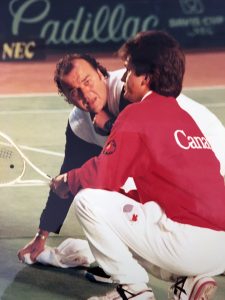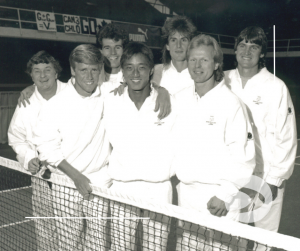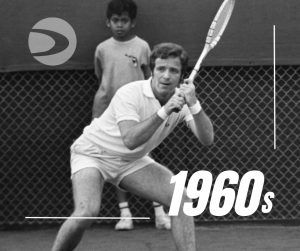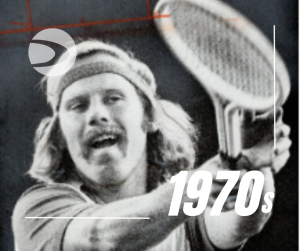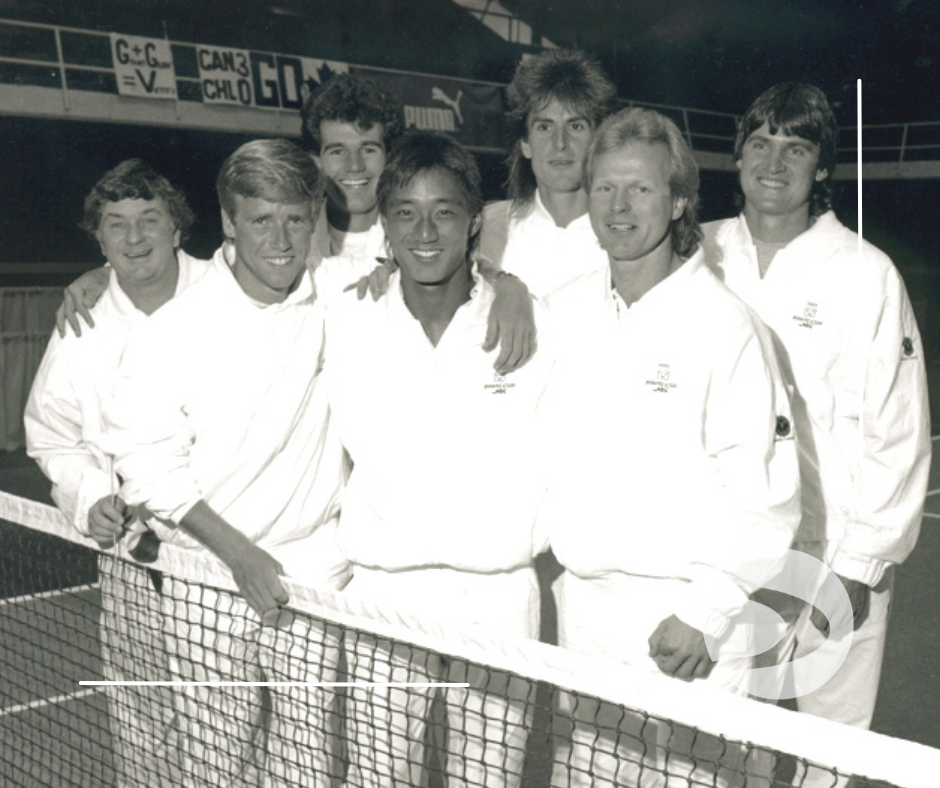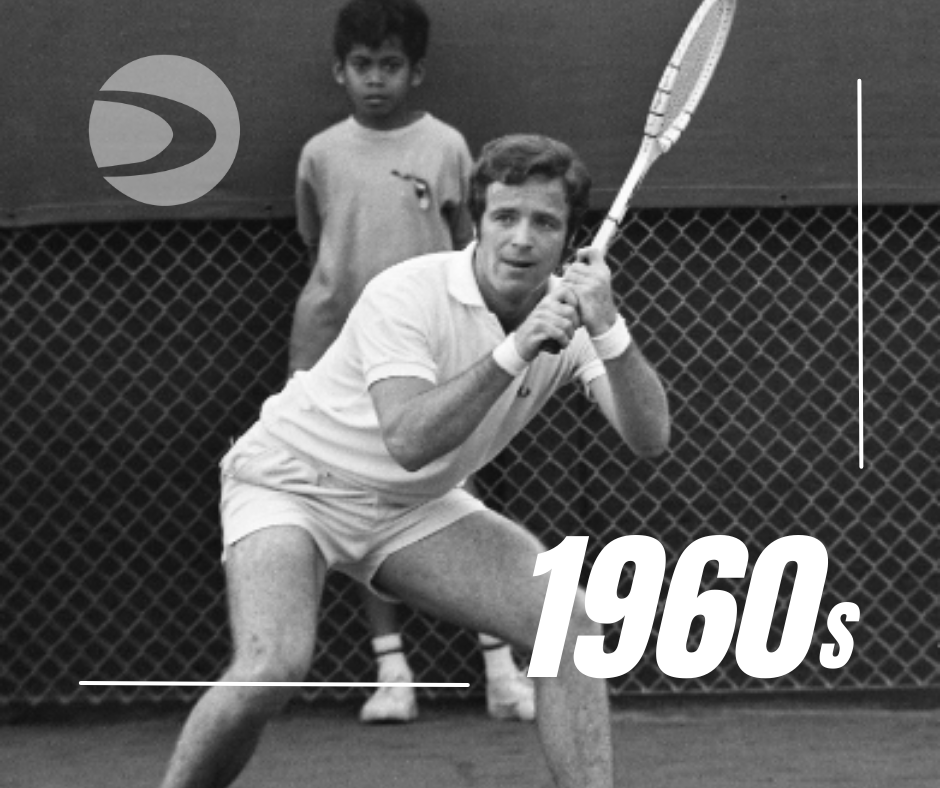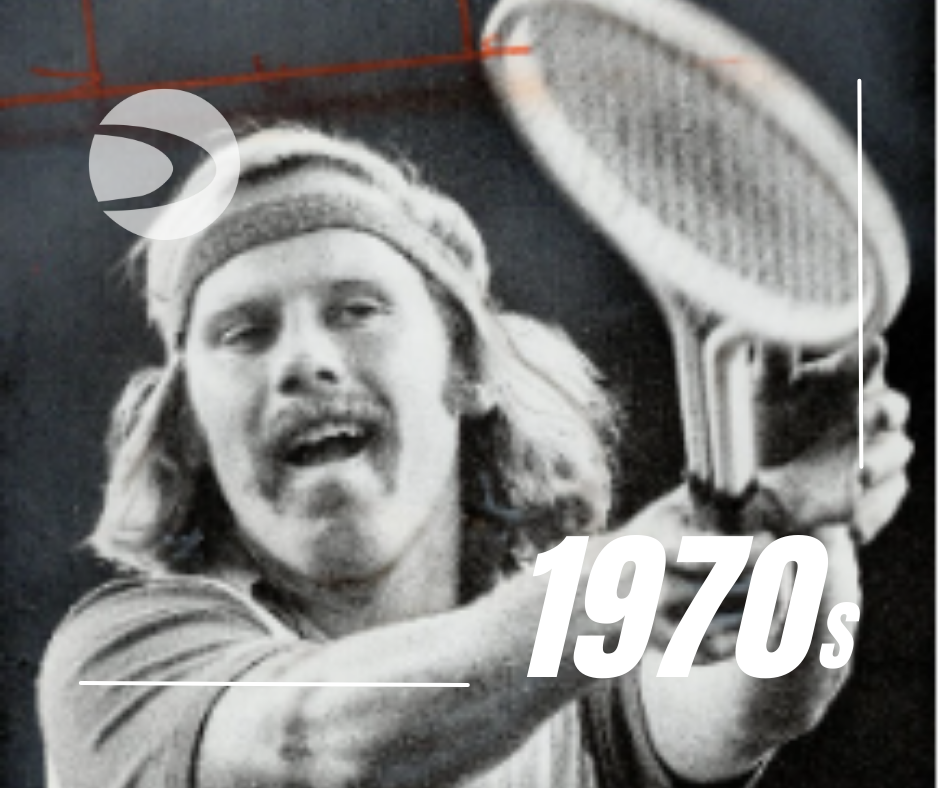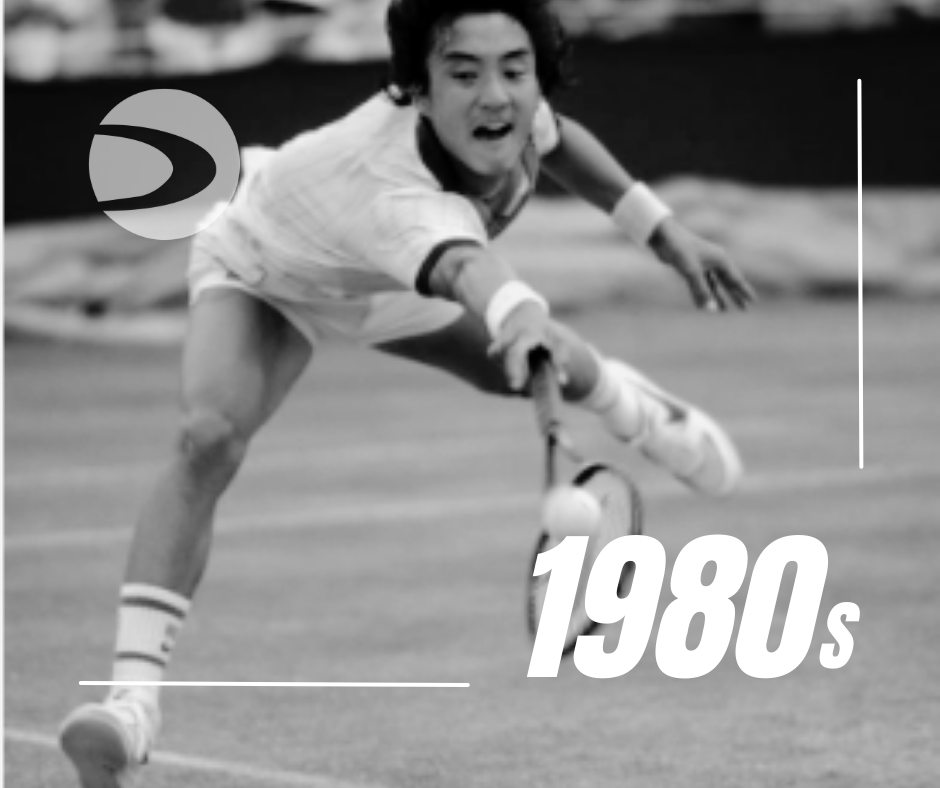Interview by Blair Rickers, Wilson Sports
This week we interview Pierre Lamarche whose career in tennis spans close to 70 years. Canadian Junior and National Champion, tour player, Davis Cup Player & Coach, Tennis Canada and Rogers Hall of Famer, Academy owner and coach, and much more…. I’ve never met anyone as passionate about the game and is able to convey their perspective in such a charismatic manner. Attached you’ll see a pic of his NCAA #3 ranked Mississippi State college team back in 1967. Pierre is a true legend of Canadian Tennis.
WaW: It’s a toss-up between John Grisham and Dak Prescott for the most famous Mississippi State alumnus. No question that you are a solid number three. How did you enjoy your time in Starkville?
PL: Starkville was a major formative time in my life. I was in school in the late 60’s, and it was an unbelievable period of progressive changes: civil rights, integration into universities, war in Vietnam, student upheaval, Black Panthers, the summer of love and Rock n Roll. As well, having the chance of playing on a very successful team [ranked # 3 in the NCAA] and becoming the youngest coach at a US school, contributed to make this one of the most special periods in my life. You should also know that one of the greatest CFL players, Jackie Parker, a Grey Cup winning QB with Edmonton, came from MSU as well.
WaW: Going to school in Mississippi at that time must have exposed you to some of the social injustices in the Deep South .
PL: When I arrived in Starkville, two of the new football recruits were the first Blacks admitted to the school and the students loved them. I must admit the southern people are very friendly and were great to our tennis team, who were mostly foreigners. It was funny, the students that were militant in Starkville were mostly worried about Vietnam [flunk out, you get drafted] or about partying, football, R&B, Rock n Roll. But as I came out of the bubble of Starkville, I understood the injustices that were being committed back then, and are still being committed today.
WaW: MSU vs Ole Miss is one of the great in-state, SEC rivalries. Any animosity you would like to share about the Rebels or any of their alumni?
PL: Actually I really grew to like Ole Miss. Many of our All Canadian [ACE] players, Simon Bartram, Paul Beck, Conor Casey, the Barbiero sisters and now Rachel Krzyzak all went on to be Rebels. One of my best friends, Billy Chadwick from Jackson, MS, was a legendary coach at Ole Miss with dozens of All Americans and a NCAA Championship (see attached pic)
WaW: In training players you have those who like the academy approach and others who prefer one player/one coach. What are your thoughts?
PL: I believe a hybrid approach is ideal. The most important part of the puzzle is the manager, the orchestra leader. It used to be the coach, now it’s the parents, the agents or the national association. There is also a simple principle I have always used which is the maximization of resources. A player is the final decision maker once they achieve a certain autonomy and intellectual maturity. Academy training, unfortunately, is not always very good, only because no one has ever developed a system of progression programs based on scientific and analytic components. If academies have a proven system, it is the most efficient financial way to get volume of play. On the other hand, having a manager coach who can integrate all the training required based on one vision is the best way. The best example of this is Felix, started by his father and developed by Tennis Canada coaches, the other is Denis developed by his mother in her program.
WaW: You’ve personally mentored so many coaches over the years, but do we need a more structured system for advancing the level of coaching in Canada.
PL: I honestly believe that Canada has one of the best coaching certification systems. It all started with Louis Cayer’s action method which became the backbone of Canadian and ITF coaching manuals. We redid the certification system based on his revolutionary method of coaching and now many Canadian coaches who never played at an international level have become great developers of younger players. What needs to happen now is for TC to develop a system which helps the clubs develop more pipeline prospects though an integrated, systematic, scientific group program. It needs to be a team approach.
WaW: How have your training methods changed over the years? Is the process of today at ACE and TTC different from your methods at All-Canadian back in London?
PL: Definitely, I keep evolving and learning on a daily basis. The advent of Analytics is a godsend when developing training programs. I am a history buff: war time strategy, American Sport System [University], etc…. When I first started, I coached how I played. The intentions, intensity, desire to win were developed through having great mentors starting with my first coach Mac Kerim, a world champion in squash who always talked to me about how a champion behaved. Then later on my manager/coach was Harry Fauquier who became and still is one of my best friends. My coaches, my players are the best source for growing, I learn from them.
WaW: No one has dealt with more tennis parents than yourself. How much involvement should parents have in their children’s tennis career? What should be their key roles?
Parents are the most important component of the equation. What they should do is another issue. First and foremost they should be supportive parents. I believe that whatever the parents decide about the management structure of the player must be respected, although in many cases, parents do not have the information or experience required to make the proper decisions even if they think they know what is good for their child. My own personal experience has been you find someone you can trust, that has a track record in developing players, and who is committed to your child. If they have access to the required resources and follows the agreed long term plan then you back him and provide the player with a unified team behind them.
WaW: What are the keys to developing the mental toughness needed to be a champion? Can it be taught, or are some people just born with the gift?
PL: Superior mental abilities, such as Nadal, Federer and Djokovic possess, come from a solid long term management program and solid parental support [think Felix, Denis and Leyla]. Gifted athletes that follow the proper development path will have a greater probability of success.
WaW: Growing up, my favourite coaches were able to teach the game, while also instilling life lessons. What do you try to instill in players that will help them off the court, in their personal, academic and work life?
PL: Although people have always identified All Canadian [ACE] as a high performance program, our motto as always been “Discipline, Pride, Courage” because performance in tennis is not the real objective of our organization. It always has been the “Development of Excellence” in youth through the sport of tennis. This is what warms my heart when I see the kids we have touched who keep on contributing to our society and great country in so many ways
WaW: We had a mini tennis boom last summer. What do we need to do to keep it rolling?
PL:
- We are at a crossroads: TC has been able to develop a program which has created opportunities never seen in this country.
- We all must come together to “maximize” this opportunity and finally establish tennis as a major sport in this country…it is now or never
- We all must understand how to go forward:
- We want to grow the sport: numbers, locations, performance
- The easiest way is to show communities in this country how to better utilize their public facilities to provide them with better long term benefits.
- Develop a group responsible for the development of strategies and the required lobbying of public sector components to use existing public investments in a more efficient manner.
WaW: What is Tennis Canada’s role in moving the game forward?
PL: TC is the most important component of the equation because at the end of the day they have the power [money] and are able to affect the position of the sport in this country. Unfortunately, the present system of decision making is basically an authoritarian one which is endorsed by board members who I question, not their integrity, but their specific tennis knowledge in making such complex decisions.
WaW: You’ve made countless friends over your years in tennis, as well, you’ve also alienated a few folks along the way. You’ve butted heads with ruling bodies on many occasions. Has the fight been worth it?
PL: You know I have succeeded because I am a serious tennis activist willing to stand up for what I think is right for the sport, the players and the coaches. I completely understand why TC and the provincial associations behave [politics, money] the way they do. These public sector entities do not provide for a proper dialogue and partnership with the private sector. When the public sector uses public money to compete against the private sector, I feel they are going against the protocols of profit organizations while hurting the private sector which is basically the goose that gives them their golden eggs [players]. How difficult can it be to develop a strategy that makes sense to most? And which provides better utilization of available Canadian resources.
WaW: This is my tunes and tipple question: OK, we are post COVID lockdown, you’ve finished another productive week at ACE, you’ve stopped over at Jake’s Roadhouse to relax. What would be your preferred musical accompaniment and what beverage are you enjoying?
PL: The oysters at Jake’s are great. On December 30th I was diagnosed with water in my lungs due to a poor heart plumbing system. I am going through this process which we will handle, so as a result I have put all beverages aside except for water and decaf tea. My next 20 year plan [I am 74] will revolve around my health, my family and the sport which I love. Thank you Blair for giving me this opportunity.
One Love… by the way, my song would be Sky and Sand by Paul Kalkbrenner :
WaW: Thanks Pierre. You never disappoint.
Pierre will be furthering the game in Canada for decades to come, I think the song “My Way” sums up his never ending quest to grow the sport of tennis. Give a listen to the epic combination of Paul Anka’s lyrics (born in Ottawa) with the reverential musical stylings of Francis Albert Sinatra.

